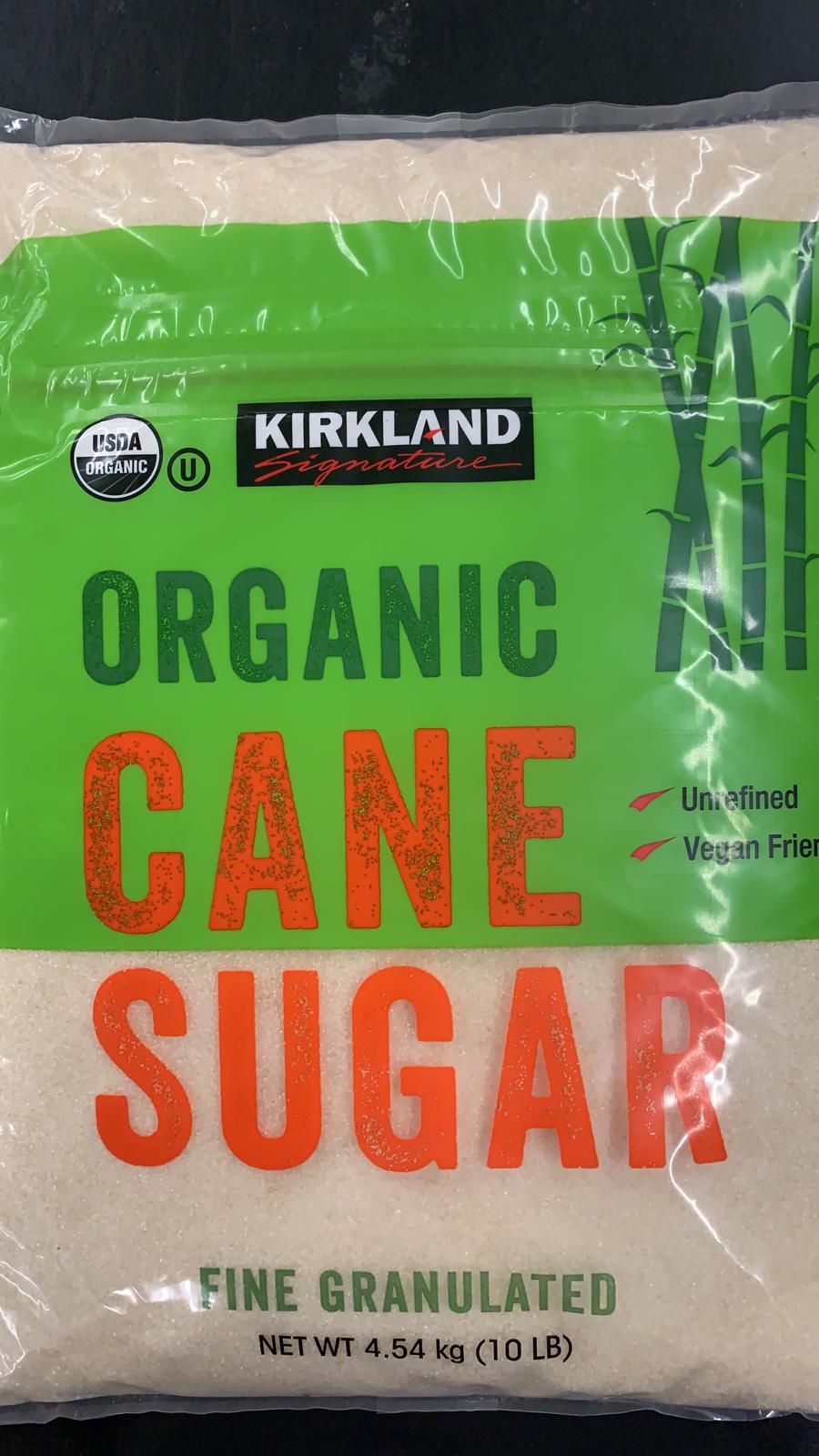Advanced Cane Sugar Processing: Enhancing Effectiveness and Sustainability
Advanced Cane Sugar Processing: Enhancing Effectiveness and Sustainability
Blog Article
A Thorough Review of the Wellness and Economic Implications of Walking Cane Sugar Processing on Local Communities
Cane sugar processing plays a crucial role in shaping the economic landscape of neighborhood communities, supplying employment chances and promoting secondary markets. The health and wellness implications associated with high sugar intake can not be ignored, as they add to increasing rates of excessive weight and diabetic issues.
Economic Advantages of Walking Cane Sugar Handling
Walking stick sugar processing offers significant financial advantages that expand past the instant farming field. The growing and processing of sugarcane create many task opportunities, from farming to manufacturing and distribution. This work generation not just sustains neighborhood economic situations but likewise cultivates area advancement by providing stable earnings sources for family members.
Additionally, the sugar market promotes secondary services, consisting of transportation, tools supply, and packaging solutions (Cane Sugar Processing). As these fields expand, they add to a much more durable financial structure, improving total neighborhood durability. The export capacity of refined walking cane sugar even more magnifies financial benefits, placing areas as affordable players in global markets
Financial investment in modern handling centers can bring about enhanced efficiency and efficiency, consequently decreasing waste and optimizing source usage. This change not only benefits the neighborhood economic situation but likewise supports sustainability initiatives by reducing ecological influences.
Furthermore, the income generated from walking stick sugar handling can be reinvested in neighborhood infrastructure, education and learning, and health care, promoting alternative neighborhood growth. Generally, the economic benefits of walking cane sugar handling are diverse, providing a structure for enduring success in farming regions.
Health Risks Connected With Sugar Consumption
Too much sugar intake positions considerable wellness dangers that require major focus. High consumption of added sugars, especially from processed foods and drinks, has actually been linked to various health issues.
Additionally, high sugar consumption is linked with cardiovascular disease. Elevated blood sugar level degrees can bring about insulin resistance, a forerunner to different heart-related problems. In addition, sugar can have detrimental results on dental health and wellness, causing cavities and gum tissue condition, as germs in the mouth grow on sugar, generating acids that erode tooth enamel.
Additionally, arising research suggests a possible link between high sugar intake and psychological health problems, such as depression and anxiousness. As areas come to grips with these health and wellness risks, it becomes vital to advertise understanding and encourage much healthier dietary choices. Resolving sugar usage is vital not just for specific health yet also for the total well-being of regional communities, stressing the demand for thorough public wellness strategies.
Environmental Impacts of Sugar Manufacturing
Regularly neglected in conversations regarding sugar's effects is the considerable environmental effect of sugar manufacturing. The growing of sugarcane often demands extensive land usage, causing logging, loss of biodiversity, and interruption of neighborhood ecosystems. The conversion of forests and wetlands right into sugar ranches can lead to environment destruction, threatening countless species and changing eco-friendly equilibrium.
Additionally, sugar manufacturing is resource-intensive, consuming significant amounts of water for irrigation. This can bring about depletion of neighborhood water resources, detrimentally influencing both farming methods and community accessibility their explanation to clean water. Additionally, the usage of chemical fertilizers and pesticides in sugarcane farming can add to dirt destruction and water air pollution, as overflow from these chemicals gets in neighboring rivers and lakes, influencing water life and human health and wellness.
The environmental impact reaches the handling phase, where energy intake and waste generation further exacerbate environmental concerns. Air contamination from melting sugarcane areas, together with greenhouse gas exhausts, contribute to environment change. Because of this, the ecological effects of sugar production warrant significant factor to consider, advising stakeholders to take on more lasting methods to mitigate these adverse impacts on neighborhood ecological communities and communities.
Work Creation and Community Growth
The environmental challenges posed by sugar manufacturing are frequently reversed by its potential for economic advantages, especially in task development and community growth. The cane sugar industry acts as a substantial resource of employment in several rural locations, providing tasks throughout various ability levels, from agricultural labor to processing and circulation duties. This work not just supports individual families however additionally adds to the general economic vitality of neighborhood communities.
Additionally, the facility of sugar processing facilities boosts secondary organizations, such as transportation solutions, tools supply, and upkeep companies. As these companies prosper, they produce extra tasks and boost local economic climates. The income created from the sugar sector additionally causes raised tax earnings, which can be reinvested into social work such as facilities, healthcare, and education growth.
Furthermore, the sugar industry often participates in community growth campaigns, such as sustaining neighborhood institutions and health and wellness programs, thus boosting the lifestyle for homeowners. By promoting strong neighborhood ties and promoting economic growth, the walking cane sugar processing field plays an essential function in uplifting local populations, making it a necessary element of lasting advancement approaches in sugar-producing areas.
Balancing Health and Economic Development
In navigating the intricacies of walking stick sugar handling, a critical difficulty hinges on stabilizing health and wellness factors to consider with economic development. The sugar sector considerably adds to regional economic climates by generating work, boosting related industries, and raising tax profits. However, the health and wellness effects related to too much sugar consumption can cause persistent conditions such as excessive weight, diabetic issues, and cardio issues, which can concern public wellness systems and reduce labor force efficiency.

In addition, governing structures can play a critical role in leading industry methods towards more lasting and health-conscious strategies. By fostering collaboration in between government bodies, health companies, and the sugar industry, neighborhoods can browse the duality of health and wellness and financial growth, making certain that the benefits of walking stick sugar handling are equitably shared while focusing on public health.
Conclusion
To conclude, the processing of walking cane sugar offers both considerable economic benefits and significant health and wellness threats for regional areas. While it cultivates task production and stimulates local advancement, the involved health and wellness problems, especially concerning weight problems and diabetes mellitus, require a cautious harmonizing act. By advertising responsible intake and investing in area education and learning and lasting techniques, it is possible to maximize financial benefits while reducing unfavorable health and wellness impacts, therefore making certain a healthier future for neighborhood populations.
Additionally, sugar can have damaging results on dental health, resulting in dental caries and periodontal disease, as bacteria in the mouth thrive on sugar, creating acids that wear down tooth enamel.
Dealing with sugar usage is vital not just for individual wellness however additionally for the overall health of local neighborhoods, highlighting the requirement for detailed public health techniques.
Frequently forgotten in discussions about sugar's implications is the significant environmental influence of sugar production. The health and wellness ramifications linked with too much sugar consumption can lead to persistent conditions such as obesity, diabetes mellitus, and cardiovascular concerns, which can concern public wellness systems and decrease labor force productivity.

Report this page